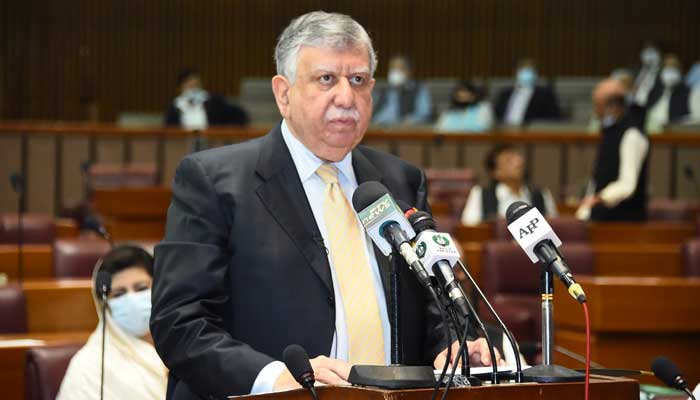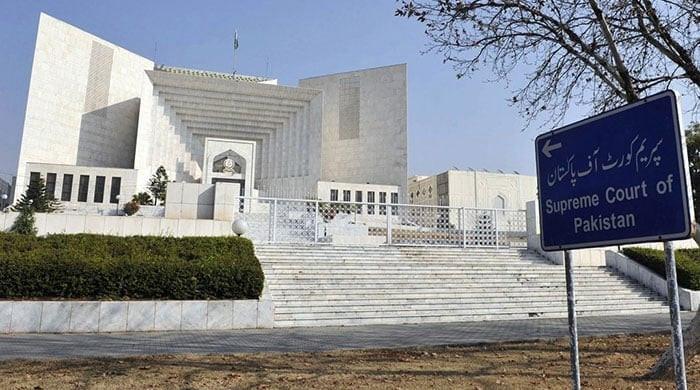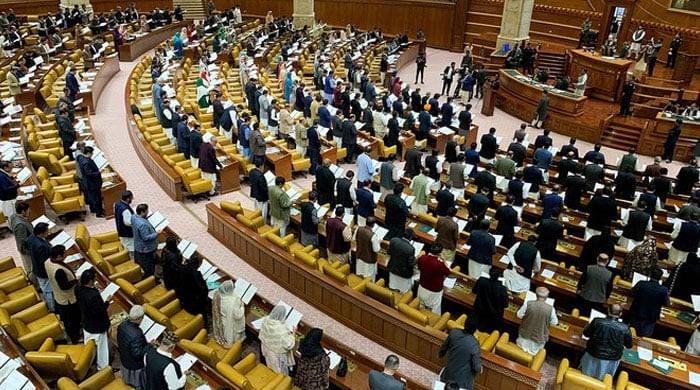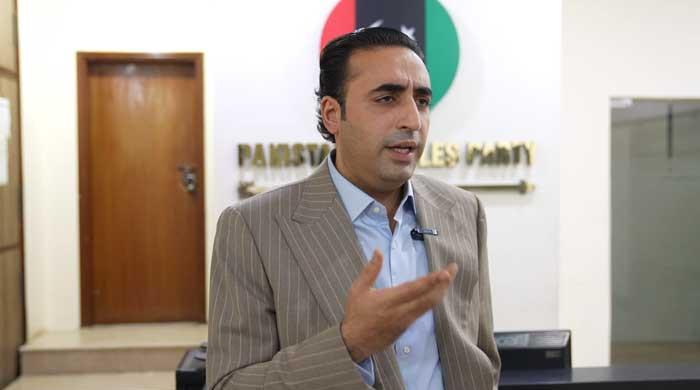IMF demands five major prior actions to resume loan facility: Shaukat Tarin
The government has shared the Circular Debt Management Plan with the IMF, says finance adviser
November 17, 2021

- Shaukat Tarin says that IMF gave Pakistan a list of five major prior actions for resumption of its $6 billion Extended Fund Facility.
- “Soon after accomplishing implementation on five prior actions, the IMF’s staff-level agreement would be done," says Tarin.
- Tarin says that the IMF did not agree with the promulgation of the ordinance for withdrawal of tax exemptions.
ISLAMABAD: Adviser to the Prime Minister on Finance Shaukat Tarin Tuesday said that IMF gave Pakistan a list of five major prior actions for the resumption of its $6 billion Extended Fund Facility (EFF).
Talking to reporters after addressing the Corporate Philanthropy Awards 2019-20, Shaukat Tarin said the five prior actions going to be implemented by Pakistan include submission of abolishing of Tax Exemption bill 2021, State Bank of Pakistan (SBP) Amendment bill 2021, and already hiked electricity tariff besides two other minor actions.
The IMF even asked for getting approval of the SBP’s Amendment bill, however, it would be submitted before the parliament in line with the agreement with the IMF, he added.
Tarin said that the IMF did not agree with the promulgation of the ordinance for withdrawal of tax exemptions but the government would have to submit a tax exemption bill in order to fulfil the IMF’s conditions.
Top official sources, however, said that the increase in monetary policy ranging from 75 to 100 basis points, adjusting upward from 7.25 to 8 or 8.25% and adjustment in the exchange rate, will also be part of prior actions for completion of the outstanding Sixth Review under the IMF programme. Now the SBP has convened its Monetary Policy Committee (MPC) on Friday (November 19) instead of November 26, 2021, for considering the monetary stance.
Now it will also be challenging for the government to pass a fresh finance bill in the shape of Tax Exemption Bill 2021 from the National Assembly. Recently, the government had faced defeat on two bills but in case of defeat on the Finance Bill in the National Assembly, it could result in the ending of the PTI-led regime.
“Soon after accomplishing implementation on five prior actions, the IMF’s staff-level agreement would be done. The five prior actions included the Tax Exemptions bill, SBP Amendment Bill, and already hiked power tariff. There are two other minor actions as well. It is hoped that all five prior actions would get implemented and then the IMF’s deal would be done,” Adviser to Prime Minister on Finance Shaukat Tarin said.
He said that the government shared with the IMF the Circular Debt Management Plan (CDMP) as circular debt would be slashed down by Rs300 to 400 billion. He said that the companies did not announce their dividends, so the government made up plans to utilize the dividend amount of six to seven giants of public sector companies to be utilized to pay off the circular debt.
To another query about the monetary policy and exchange rate, he replied that the monetary policy and exchange rate was the domain of the central bank and he did not even ask about these issues. He said that with the signing of the IMF deal, the exchange rate would start appreciating and the rupee would be strengthened against the US dollar.
When asked about the SBP’s amendment bill, he said that the Ministry of Law was reviewing the draft law and it would be introduced in the parliament.
To another query whether the Monetary and Fiscal Coordination Board would remain enacted under the new proposed draft of SBP’s amendment bill, the adviser replied that you would see when things would be finalised with the IMF.
He said that Pakistan’s exports were largely dependent upon USA and EU and in the aftermath of the surfacing of GSP Plus related issues, there was a need to diversify our export-related destinations.











